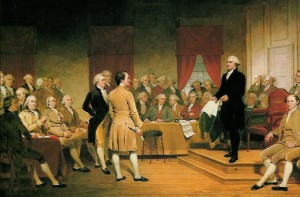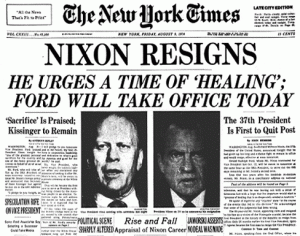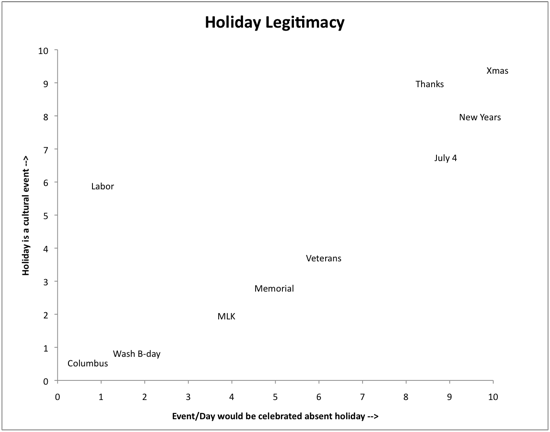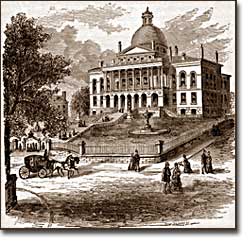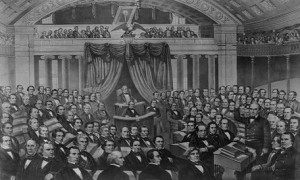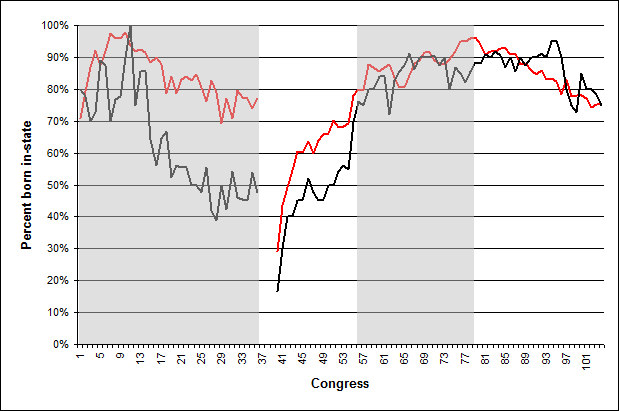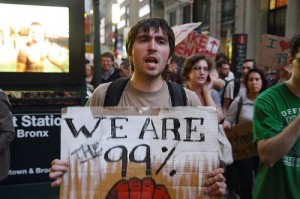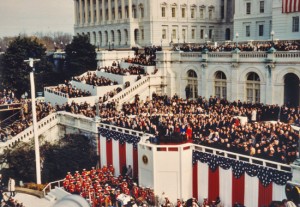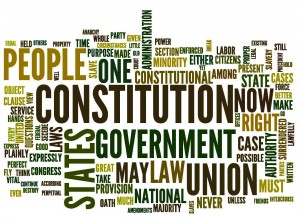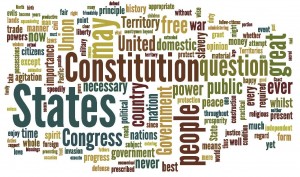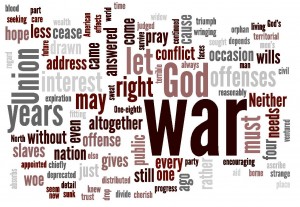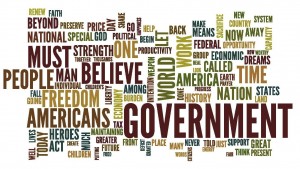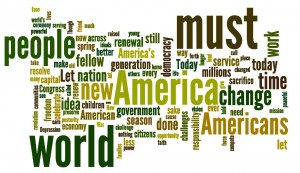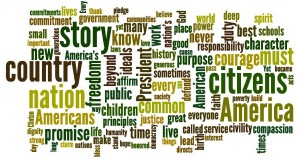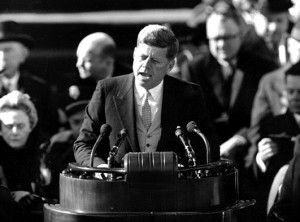I always cringe when candidates start to riff on U.S. history in debates, but last night, thankfully, wasn’t too bad.
Gingrich, not surprisingly, threw out a couple of historical items that I thought were noteworthy. First, the question was raised by the moderator regarding the relevance of Romney’s Mormon faith and all that jazz. A few other candidates spoke, and then Gingrich said this:
Well, I think if the question is, does faith matter? Absolutely. How can you have a country which is founded on truths which begins we are endowed by our creator with certain inalienable rights? How can you have the Northwest Ordinance of 1787 which says religion, morality and knowledge being important, education matters. That’s the order: religion, morality and knowledge.
Now, I happen to think that none of us should rush in judgment of others in the way in which they approach God. And I think that all of us up here I believe would agree.
There’s a little to quibble with here — the first truth in the Declaration of Independence is “that all men are created equal,” not “that they are endowed by their Creator with certain inalienable Rights,” which is actually second — but mostly he gets the basic facts more or less right. He also twisted the Northwest Ordinance a little bit. It does indeed say, in Article 3, that religion, morality, and knowledge are necessary to good government and happiness, and therefore schools should be encouraged. But that (was and) is as much an argument for increased state and federal funding of education as it is for (what I take to be) Gingrich’s point about curriculum. But again, nothing too bad here.
A bit more annoyingly, Gingrich also misrepresented the basic thrust of the Northwest Ordinance as it relates to religion, which is unequivocally toleration, and not the promotion of religion in schools. The Ordinance declares “civil and religious liberty” the basis upon which the colonies/states and their laws “are erected.” And Article 1 reads, “No person, demeaning himself in a peaceable and orderly manner, shall ever be molested on account of his mode of worship or religious sentiments, in the said territory.” Gingrich could have even mentioned that in making his second point, maybe throwing in a nice quip about Romney being politically molested or something. I don’t have any doubt that Gingrich is broadly committed to religious liberty and not interested in making Mormonism a political issue, so I can’t see how it would have hurt. And it might have helped if people have doubts about Perry’s commitment to the same, post-Jeffress.
Gingrich also brought up the Lincoln-Douglas debates, which regular readers know I have a fair amount of interest in. Here’s Newt:
As the nominee, I will challenge Obama to meet the Lincoln-Douglas standard of seven three-hour debate, — no moderator, only a timekeeper.
Well, that’s certainly factually correct — Lincoln and Douglas debated seven times in 1858 and there was no moderation. (Each candidate spoke for 90 minutes, in a 60-90-30 format, alternating in each debate which candidate went first).
People always ask me if I think a Lincoln-Douglas style debate could work in the modern age. This is really two questions; first, would modern general-election candidates agree to participate in such a debate and, second, would the debate be a positive to our political process relative to the existing presidential debate structure.
On the first, I’m skeptical. Modern campaigns have gotten pretty good at understanding how to deal with the 60 second or 30 second response time to a question (just as politicians have gotten good at the same thing with reporters’ questions), and I’m not sure they’d want to roll the dice on something totally new, given how unknown the results would be. Campaigns in general do not love debates; they are semi-uncontrollable situations, and campaigns tend to dislike the potential volatility. Especially campaigns that are in the lead, or have more resources, or have candidates that aren’t as good at debating. In effect, there’s usually at least one candidate looking at the debate as something to be survived without providing the opponent an opportunity for a powerful, unscripted moment. There’s a general norm right now that holds the presidential debates together, and I think a candidate would suffer some from refusing to participate. But I also think the norm is pretty fragile; it wouldn’t shock me if a candidate sometime in the next handful of cycles refused to debate.
On the second question— would it be helpful — I’m even more skeptical. I don’t think the 60-90-30 format would work at all. That strikes me as a recipe for tuning voters out. Three hours is a long time, and even a half-hour speech is long enough to completely turn people off. Part of this is the changing nature of the purpose of debates: in 1858, the debate served partially as an mechanism of information transmittal in a less information-intensive environment: twelve thousand people showed up in Ottawa for the first Lincoln-Douglas debate in part because they wanted to see what the men looked like and get a feel for who they were as people. Did they look smart? Did they sound smart? Did they conduct themselves well? These are things not readily available on the printed page in 1858, but delivered in sensory overload now. I just don’t think people would watch for that long. So the format would have to be modified. Maybe you could do 10 or 15 minute alternating blocks of time, but I’m not even sure of that.
But what about an unmoderated debate? Again, I’m pretty skeptical. Theoretically, it’s really appealing to me. But my sense is that the campaigns would work hard to suppress the potential fireworks (either through pre-debate agreement on groundrules, or candidate strategy in the actual speeches) and you’d end up with something that looked a lot more like a couple of guys just giving their stump speeches. Even if it worked as well as the Lincoln-Douglas debates, I’m not sure most people would be all that impressed; the fact is that even the best political debates don’t come close to anyone’s good government normative idealized notion of them. Yes, the Lincoln-Douglas debates took on the issue of slavery in a relatively substantive manner, but they also were rife with name-calling, half-truths, distortions, ad hominem attacks, ducking of issues, and everything else you associate with modern debates. Just as a competitive market serves the consumer but not any individual firm, candidates are not necessarily particularly well served by the ideal debate for voters.
I’d be happy to give it a try — I don’t see a lot of harm from having a Lincoln-Douglas debate — but unlike Newt, I don’t see it as much of a benefit to anyone, and certainly not a panacea to anything related to our political/electoral system.

